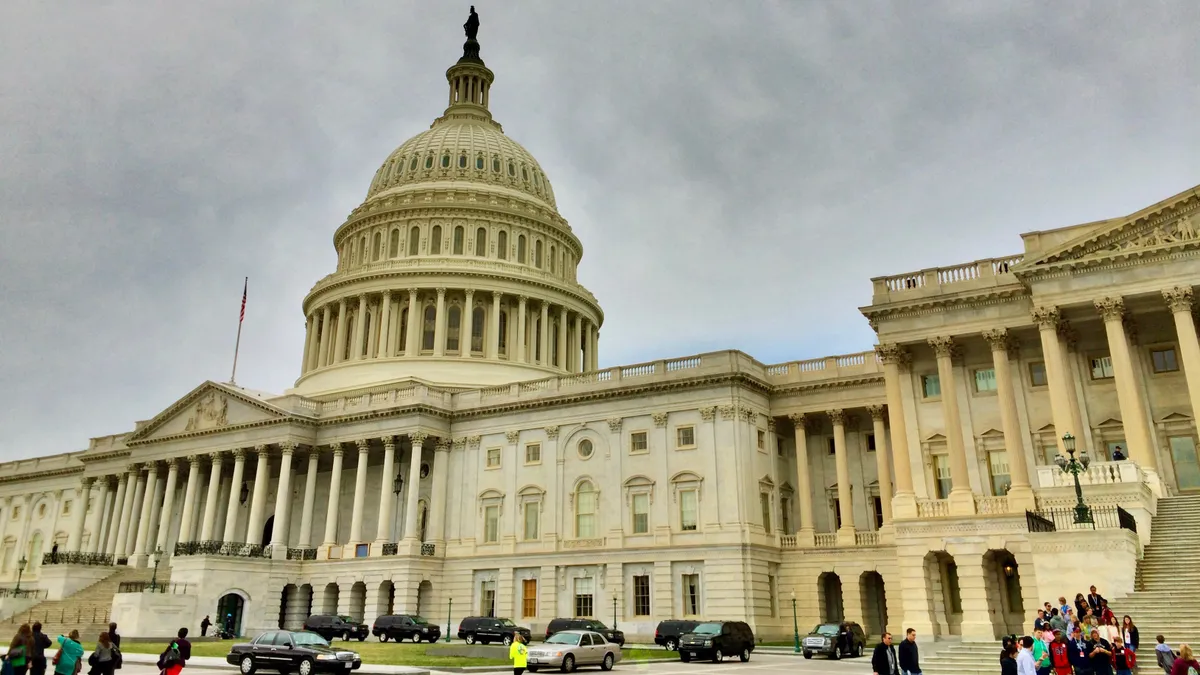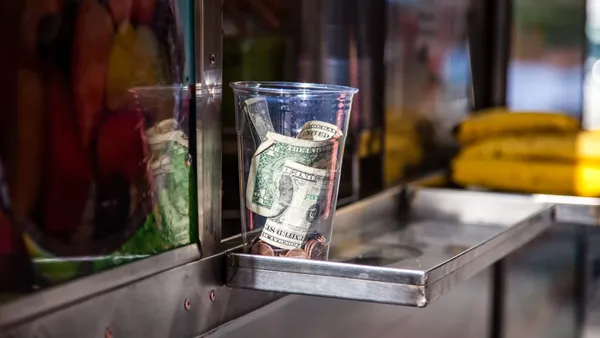UPDATE: Dec. 22, 2020: Congress passed a more than $2 trillion coronavirus relief and government spending package, which includes $900 billion in pandemic aid, on Monday night. The package passed easily in both the Houses (359-53) and the Senate (92-6). President Donald Trump is expected to sign the bill into law.
Dive Brief:
- Congress struck a deal on a $900 billion stimulus package Sunday night following a months-long stalemate on negotiations. The House and Senate also passed a bill dubbed the "Extension of Continuing Appropriations Act" on Sunday to avoid a government shutdown set to begin after midnight on Monday, which President Donald Trump signed on Sunday. Congress plans to vote on the stimulus deal Monday.
- The relief package will funnel $284 billion into the Paycheck Protection Program, and allocate an additional $20 billion to small business grants and $15 billion to live event venues, but does not include restaurant-specific aid, which the industry urged U.S. legislators for months to include in their next relief bill.
- The Independent Restaurant Coalition said in an emailed statement that new PPP funding allocations will give Congress additional time to negotiate a more substantial plan in January, but said "this bill falls woefully short" of what restaurants need and pushed for "swift action" on the Restaurants Act once again. President-elect Joe Biden said the plan provides "critical temporary support," but urged Congress to pass more relief measures in January.
Dive Insight:
As major restaurant cities around the U.S. begin to feel the devastating effects of winter weather amid dining room restrictions and closures, new Paycheck Protection Program funding offers some hope for businesses trying to keep their heads above water.
But the restaurant industry has long said that PPP loans are just a stopgap and are not enough to sustain the restaurant industry, which lost over 17,000 jobs in November and is down more than 2.1 million jobs since the beginning of the COVID-19 crisis, according to the National Restaurant Association. Unemployment in the leisure and hospitality sector is 134% higher than the national average, and NRA predicts the sector will lose $240 billion in sales by the end of the year.
"Make no mistake: independent restaurants and bars will continue to close without additional relief this winter, leaving millions more out of work," the IRC said in a statement, calling for Congress members to rally behind the Restaurants Act.
The bill is co-sponsored by 53 members of the Senate from both parties and passed the House in October. In the last two weeks, more than 34,000 people from the restaurant businesses signed an open letter to Congress urging support of the measure, which would allocate $120 billion in grants for independent restaurants, according to the IRC.
Vice President-elect Kamala Harris is a co-sponsor on the bill, and President-elect Joe Biden has called for grants instead of loans to support the restaurant industry. The Biden administration, however, won't begin until late January, and even if Congress gets to work immediately on new COVID-19 support measures, another wave of restaurants could go under before an agreement is reached.














